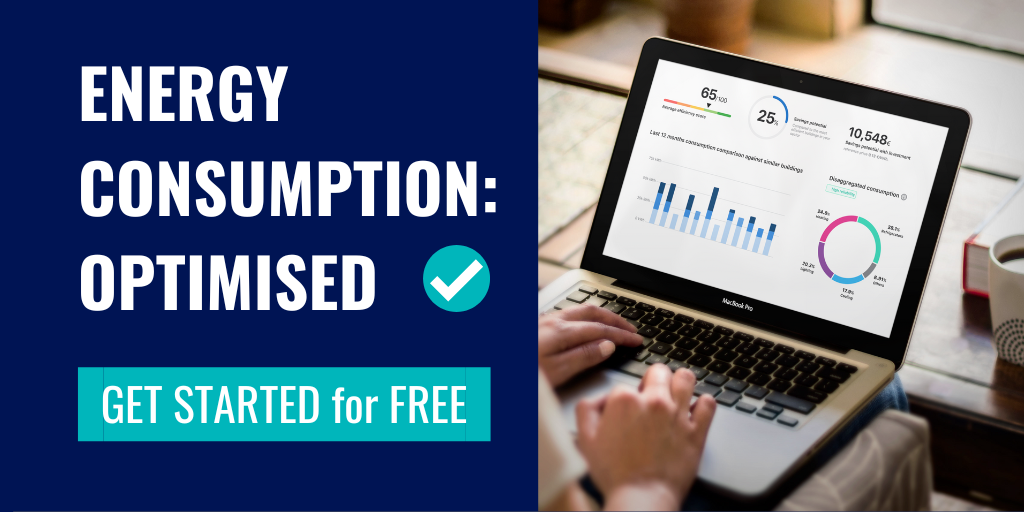The Energy Performance Contract (EPC), is one of the modalities of contracting energy services. In this article, you’ll find out what is the Energy Performance Contract and what tool can help your company to ensure the reduction of energy consumption whatever its sector of activity: industry, service, public administration, transport, etc…
What is an Energy Performance Contract or EPC?
Energy savings and energy efficiency play an essential role in the energy strategy of Western countries to achieve energy transition objectives.
The trade agreement reached between UK and UE in 2020, due to the BREXIT, resulted in the UK’s exit on 1 January 2021 from the joint action of European Countries against climate change. But equally, both sides have continued to respect key environmental principles, such as precaution integration, energy transition, and the payment of damages by the pollutes.
All of them were influenced by the Directives 2006/32/EC, 2012/27/EU on Energy Efficiency at the European level, and some UK regulations such as the Energy Savings Opportunity Scheme (ESOS) at a national level – some tools implemented by the different Administrations to encourage the development of the Energy Efficiency sector.
Launched by the European Union (EU) in 2006 – initially, for the building sector – Energy Performance Contracts (EPCs) aim to improve the energy efficiency of buildings. It is a link between a customer and a specialised energy service operator with which an internal commitment is made to implement energy consumption optimisation systems. In other words, the main objective of an EPC is to reduce the energy consumption of buildings, whether public or private (residential, tertiary, industrial, or local authorities) and to guarantee this effort over time.
The Government of the UK offers some accompanying guidance notes and guides to best practices for the Model Energy Performance Contract on its website.
Making a company or a building consume less energy is not a simple task: the analysis is complex and requires a certain amount of experience. Often, the company is not even able to identify the most appropriate way to reduce pollutant emissions from its buildings.
The energy performance contract allows each company to manage its entire energy performance with the help of a specialist. The company can then delegate the management of its energy, thus paying for itself through the savings it generates.
The EPC differs from other energy services in that it combines an investment to improve the energy efficiency of a building with a guarantee of reduced energy consumption. It is therefore called an Energy Performance Guarantee Contract (EPC).
By guaranteeing a reduction in consumption (and therefore often in the energy bill), the energy service operator (ESCO) commits to the impact of the measures on the consumption of the industry or building stock. If the target is not reached, the operator pays its customer a penalty (malus). If the target is reached and exceeded, the benefits (bonus) are shared between the two parties.
In short, an EPC should:
- Define a baseline situation,
- Define energy performance actions to achieve energy savings,
- Ensure energy savings over time and reduce the carbon footprint of your building or group of buildings.
Who are the actors in an Energy Performance Contract EPC?
On the one hand, we have, any company in the service or industrial sector, who have to implement EPCs:
- The Services sector. It is one of the sectors with the highest consumption, where the energy cost has a significant impact on its economic activity. Many of the sectors within the services sector sometimes have shallow margins that must be compensated by reducing costs.
In their case, reducing energy consumption is one of the best options, as they improve both costs and energy efficiency while maintaining the productivity of their services. For this reason, EPCs are very beneficial for them. - Industrial sector. As a large consumer of energy, the industry also benefits from EPCs. Any company with energy performance targets is affected by the EPC. If it has energy efficiency projects, the EPC can accelerate projects, find financing solutions and facilitate the expertise of an energy service provider.
And on the other side, energy service providers or ESCOs need to be increasingly digital to create competitive services.
What Tool will Help you Achieve your EPC Roadmap?
When you define an Energy Performance Contract, it is nothing more than a roadmap to follow to achieve your customers’ energy efficiency and savings targets.
But, what tool can help you track the progress of this roadmap?
Working with energy monitoring and analysis solutions such as the DEXMA Platform will allow you to:
- Access energy data through integration with existing equipment
DEXMA connects to multiple data sources and then automates their collection. These can be external conditions (weather, occupancy rates), or automatic readings from network operators (energy contracts, invoices, BMS, IoT sensors, internal management systems, CRM….).
The data is then analysed and presented in customisable dashboards that evolve in real-time.
- Quantifying the gains: analysis and verification (IPMVP Protocol)
In order to verify and quantify the energy savings achieved, it is essential to compare consumption taking into account all variables (climate, occupancy density or any other variable influencing consumption). This is the function of the IPMVP Protocol (International Performance Measurement and Verification Protocol), which makes it possible to measure and monitor the energy consumption of a building that has benefited from energy-saving measures (energy renovation, etc.).
- Significantly reduce energy consumption
An energy management solution allows you to digitalise energy performance contracts to monitor the evolution of your consumption. This visualisation of carbon impact allows you to identify priorities.
The Dexma Advanced Energy Management Platform, in addition to monitoring the actions carried out during the contract, will allow you to obtain customised reports for your customers, advanced analysis, and even energy consumption estimates.
What benefits do you get after using an Energy Management System?
These are some benefits you will get from working with an EMS during your Energy Performance Contract:
- Easy and automated quantification of building efficiency,
- Project benchmarking, energy and financial impact studies,
- Immediate economic benefits from optimising energy contracts.
Energy structures the world around us. Our mission at Dexma is to help people and businesses understand and optimise their energy use. If you would like to see the potential of Dexma for EPC Contracts, please contact our team to arrange a demonstration of the platform.
Editor’s Note – This article has been written by one of our experts in advanced software energy management:
Caroline Grisel, Account Executive, has been part of the Dexma Team since May 2021. She is currently working in the Sales team, advising new potential partners and clients who are looking at optimising their energy consumption.





